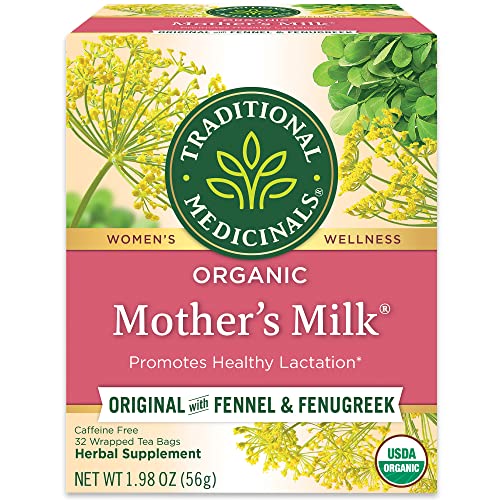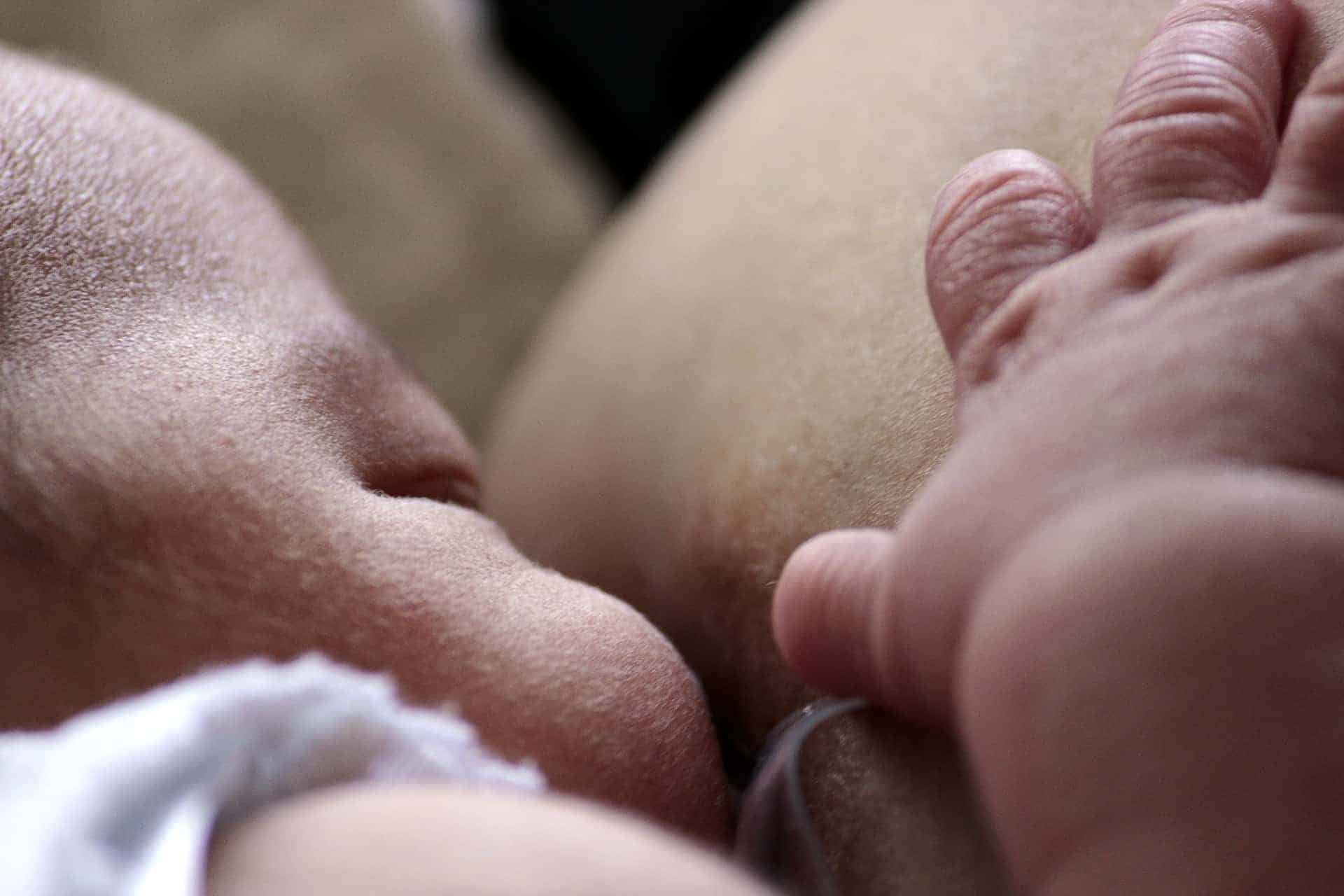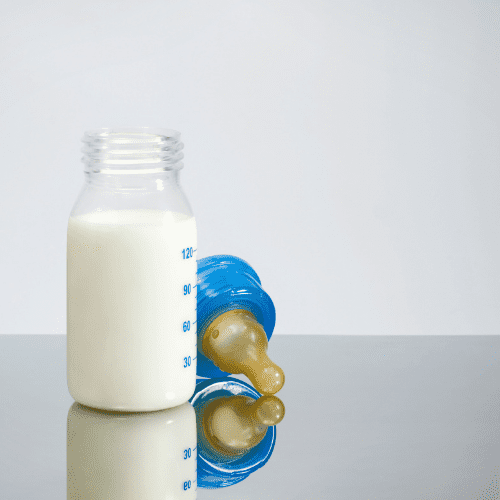Breastfeeding is a hugely challenging task for a new mother. It is a period full of self doubt and anxiety, where you are always second guessing whether or not there is enough milk being produced for your precious little.
More often than not, mothers assume they are not producing enough milk because their breasts feel empty specifically in the evenings during cluster feeding. It is key to remember the more you empty your breasts, the more milk will be produced to replenish the emptied milk. This will in turn increase and sustain your milk supply.
However, there will always be times when milk production dips slightly and there are various reasons why your milk supply may decrease. You can spot a low milk supply, if the baby is not producing enough wet nappies, if the baby is not putting on sufficient weight on their growth graph, if baby is struggling to fall asleep after a feed and doesn’t look full.
This article will explore the reasons why breastmilk supply may dip in the evenings and what can be done to overcome this issue.
As an Amazon Associate, I earn from qualifying purchases. The links below may be affiliate links. Please read my disclosure policy for more information.
How To Tell If Your Milk Supply Has Lowered?

The quickest and easiest way to know whether your milk supply has lowered is to keep an eye out on your baby’s nappies and to check their daily weight gain.
Typically, a well fed baby puts on 30g per day during the first few weeks of their life. If they are not growing adequately on their centile on the growth chart then that means they may need more milk.
Healthy babies will usually have six heavy wet nappies in 24 hours which can also be accompanied by 304 stools. However, it is important to note that not all breastfed babies will pass stool everyday.
Other signs to look out for in deciding whether or not your baby is getting enough milk in the evenings is whether or not they have a healthy skin color – signs of yellow in their eyes and skin means they have jaundice and need more milk.
Baby needs to be alert in between feeds, comfortable and relaxed, not lethargic. If baby is constantly rooting for the breast in between feeds, then it is likely they are still hungry and you are not producing enough milk.
Why Does Breastmilk Supply Lower During Evenings?

It should be noted that it is normal for milk production to slow down in the evening. As the sun sets, your body starts to produce melatonin which helps to make you feel sleepy. It also boosts prolactin which is a hormone which helps produce milk.
Therefore, this is why you wake up with a full breast of milk in the morning since the milk making hormone has been busy at work all night. This is also the reason why milk supply dips in the evening because prolactin levels decrease as the day goes on.
However, if you are not offering night feeds to your baby your prolactin levels can drop causing a decrease in your overall milk supply. This could also be the reason if you are supplementing with formula during the evenings, your breasts do not get emptied and instead think you do not need the milk and lower production.
There are various reasons why your breastmilk supply may be lowering. It could range from hormonal issues, stress, dehydration, lack of calories. Give your breasts 20-30 minutes to replenish.
If your baby has an incorrect latch, if could mean they are not emptying your breasts adequately which in turn means your production is being effected. Same goes for not using the correct nipple size for your pump, and the pump not emptying your breast adequately.
Stressful situations and feeling anxious can also lower breastmilk production. Try to relax and rest as much as you can and ask for help from friends and family. Lack of sleep in those early months can also contribute towards low milk production.
Cluster Feeding During Growth Spurts

You may find that your breasts feel saggy and empty in the evenings. This is common, as the day begins your breasts are fuller and as it progresses the fullness is reduced during the course of the day.
By the time it is the end of the day your breasts will not feel as full and round as they did in the morning when you woke up for your first feeding session. This is only a problem, if you notice your baby is not temporarily content after a feed in the evening.
It is also very common for babies to be extra fussy and clingy for breastmilk in the evenings specficially during growth spurts. This doesn’t mean that you are producing less milk necessarily, it just means the baby requires frequent feeding in order to satisfy the baby’s frequent hunger demands.
During periods of growth spurt and cluster feeding, you can help your breasts produce more milk by engaging in power pumping in between feeds, and waking up 2 hours before baby’s first morning feed to pump. You can also pump after every feed, to encourage more milk production during this period.
Haaka, a hands free natural suction pump is also a product to keep at hand during those morning feeds when you might get extra let down. You can collect the breast milk in it and store it for the evenings when baby is fussy.
How To Increase Your Milk Supply
There are a few things you can do to increase your supply over time. For starters, you can offer your baby more feeds more frequently during the day. Aim to feed between 8-12 times in 24 hours.
Don’t forget to offer both breasts during a feed, exchange the breast mid feed to make sure both breasts are being emptied at every feed.
You can do this by first offering the right breast, then 20 minutes later offer the left breast and then 20 minutes later go back to the right breast for 10 minutes. Next feed start with the left breast first for 20 minutes, then the right breast for 20 minutes and then back to the left breast for 10 minutes.
This will ensure your breasts are being emptied sufficiently during each feed, and the baby doesn’t choose one breast at every feed, slowing production in the less favorable one. The more efficiently the breasts are emptied, the better the milk production.
Encourage nighttime feeds, since your prolactin levels are higher at night therefore emptying the breasts more frequently in the evening and at night will increase milk supply.
It is also a good idea to pump after every feed to encourage further emptying of your breasts and subsequently milk production. You can also do a session of power pumping after a feed. Some moms would benefit for regular pumping every 2-3 hours.

Another way you can increase your milk supply is by increasing the frequency of your skin to skin contact with your baby as this stimulates hormone production of both prolactin and oxytocin. Both of these hormones help to produce milk.
It also goes without saying that maintaining a healthy diet, keeping well hydrated, staying well rested – which is near impossible with a new baby – are all contributors of developing a healthy milk supply. Making sure your breastfeeding pillow is comfortable, and your back is well supported.
Lastly, and most importantly don’t forget to do breast compressions during your feeding sessions. This helps milk flow out of the milk ducts and empty your breasts efficiently. Breast compressions help milk flow out quicker and drain the breasts.
You can also include more galactagogues in your diet to help boost your milk production. Foods such as lactation cookies, fenugreek seeds, oats, nuts and seeds, dark green vegetables, nursing tea, bone broth with turmeric – are all foods that are said to help with increasing milk supply.
Sometimes your baby will just cry after a feed because they just want to be held, hugged, burped, soothed. It doesn’t necessary mean they are still hungry and want more milk. Babies use the breast for soothing as much as they use it for feeding.
It is important to consider all the points mentioned in this article, it could be that your milk supply is fine but simply just dipping in the evenings due to production slowing down.
There are various things you can do to increase the supply if need be such as offering more feeds to your baby, doing breast compressions, pumping after feeding and keeping well hydrated and rested.
It should also be noted there will be some days where you might not produce as much milk as usual. Remember to eat well, consume calories and stay hydrated.







